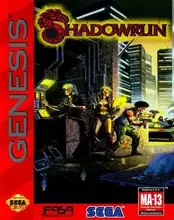Stepping into the shoes of a digital gumshoe offers a unique thrill. Forget pixel-perfect headshots or frantic button mashing; the joy in Detective & Mystery Games comes from quiet observation, piecing together disparate clues, and the satisfying 'aha!' moment when everything clicks. For many of us who grew up clicking through pixelated worlds or typing commands into a parser, these games hold a special, nostalgic place.
While modern blockbusters might dabble in investigative elements, the pure essence of the detective genre often shines brightest in titles that prioritize narrative, puzzle-solving, and exploration over action. It's about the journey of discovery, the careful interrogation, and the logical leaps that lead you to the truth.
Why Retro Gamers Dig Detective Games
Think back to the golden age of adventure games. What were they often about? Exploring environments, picking up seemingly random items, figuring out convoluted contraptions, and talking to quirky characters to gather information. Sound familiar? That's the core loop of many classic mystery games!
These games tapped into a fundamental human desire: to solve puzzles. Whether it was using a rubber chicken with a pulley in Monkey Island (okay, maybe less 'detective' and more 'absurd adventure') or carefully cross-referencing witness statements in a more serious title, the satisfaction came from using your brain. Early text adventures and graphical adventures forced you to pay attention to detail, remember facts, and think laterally. There wasn't a glowing marker telling you exactly what to do; you had to deduce it. This focus on player agency in puzzle-solving is a hallmark that resonates deeply with players who cut their teeth on less hand-holding experiences.
The Old School Sleuthing Spirit
While dedicated "detective simulators" might be a more modern term, the spirit of solving mysteries was baked into many early genres.
- Text Adventures: Titles like the original Zork trilogy or Planetfall often involved unraveling strange situations through careful exploration and interpreting text descriptions for clues.
- Early Graphical Adventures: Games like Maniac Mansion or King's Quest might not have been strict mysteries, but they taught us how to gather items, use them in logical (or sometimes illogical) ways, and interact with the world to progress – skills essential for any digital detective.
- Point-and-Click Mysteries: As graphics improved, dedicated mystery series emerged. Think Gabriel Knight with its deep lore and investigative mechanics, or the early Phoenix Wright: Ace Attorney games on handhelds that brought courtroom drama and investigation to the forefront. Even the long-running Nancy Drew PC series, while perhaps aimed at a younger audience, provided solid, puzzle-driven mysteries that trained a generation of amateur sleuths.
These games weren't just about finding the killer; they were about immersing yourself in a world, talking to everyone, examining every nook and cranny, and slowly, methodically, piecing together a narrative from scattered fragments.
Modern Mysteries Keeping the Flame Alive
Thankfully, that old-school spirit hasn't vanished. Many modern Detective & Mystery Games build on these foundations, offering deep, satisfying investigative experiences.
- The Case of the Golden Idol: This indie gem is lauded for its pure deduction gameplay. You're presented with morbid scenes and a collection of words, and your task is to correctly assign names, verbs, and objects to piece together what happened. It's challenging, requires genuine thought, and feels incredibly rewarding, much like solving a complex logic puzzle from a magazine back in the day.
- Return of the Obra Dinn: From the creator of Papers, Please, this game puts you aboard a ghost ship with a magical pocket watch. You witness the final moments of the crew and must identify each person, their fate, and who was responsible, all through careful observation and deduction. Its unique monochrome aesthetic and clever mechanics make it a standout.
- Ghost Trick: Phantom Detective: While not strictly retro, this Nintendo DS title (now available on other platforms) has a timeless charm. You play as a ghost who can possess objects and rewind time to prevent deaths. It's a brilliant puzzle game wrapped in a compelling mystery narrative with fantastic characters and a unique visual style, sharing DNA with the beloved Ace Attorney series.
- Disco Elysium: For a deeper, more narrative-heavy experience, Disco Elysium is unparalleled. You're an amnesiac detective in a gritty city, and the mystery is as much about uncovering the crime as it is about figuring out who you are. Its unique skill system and dialogue-driven investigation offer a truly immersive role-playing experience.
These games, and others like them (such as Tangle Tower or The Forgotten City), prove that the appetite for thoughtful, puzzle-focused mysteries is as strong as ever. They capture the essence of classic adventure games while pushing the genre forward.
Where to Find Your Next Case
Ready to put on your trench coat and dive into a mystery?
- GOG.com (Good Old Games): A treasure trove for classic PC adventure and mystery titles, often pre-configured to run on modern systems. Look for older point-and-click adventure games or lesser-known PC mysteries.
- Steam/Epic Games Store: The main hubs for modern indie hits like Golden Idol, Obra Dinn, Disco Elysium, and Tangle Tower.
- DOSBox / ScummVM / Emulators: If you're feeling adventurous, you can run many truly classic PC adventure games yourself using tools like DOSBox or ScummVM. Archive.org also hosts many playable-in-browser classic titles.
- Console Ports/Remasters: Keep an eye out for remasters or ports of classic handheld titles like Ace Attorney or Ghost Trick on current consoles or PC.
Whether you prefer pixelated crime scenes or beautifully rendered environments, the world of Detective & Mystery Games offers countless hours of brain-tickling fun. So fire up your system, sharpen your wits, and get ready to solve some cases!
FAQ
Q: Are Detective & Mystery Games usually action-packed? A: Generally, no. The focus is typically on exploration, dialogue, puzzle-solving, and deduction rather than combat or fast reflexes.
Q: What makes a game feel like a "true" detective experience? A: Many players feel it's when the game requires them to make the logical connections and deductions based on clues, rather than just following on-screen prompts or matching items.
Q: Are there any old mystery games I can play easily today? A: Yes! GOG.com is excellent for classic PC titles. Some older console or handheld games have also received remasters or ports to modern platforms.
Q: Are point-and-click games considered mystery games? A: Many classic point-and-click games incorporate strong mystery elements, requiring players to explore, gather clues, and solve puzzles to unravel a central enigma.


